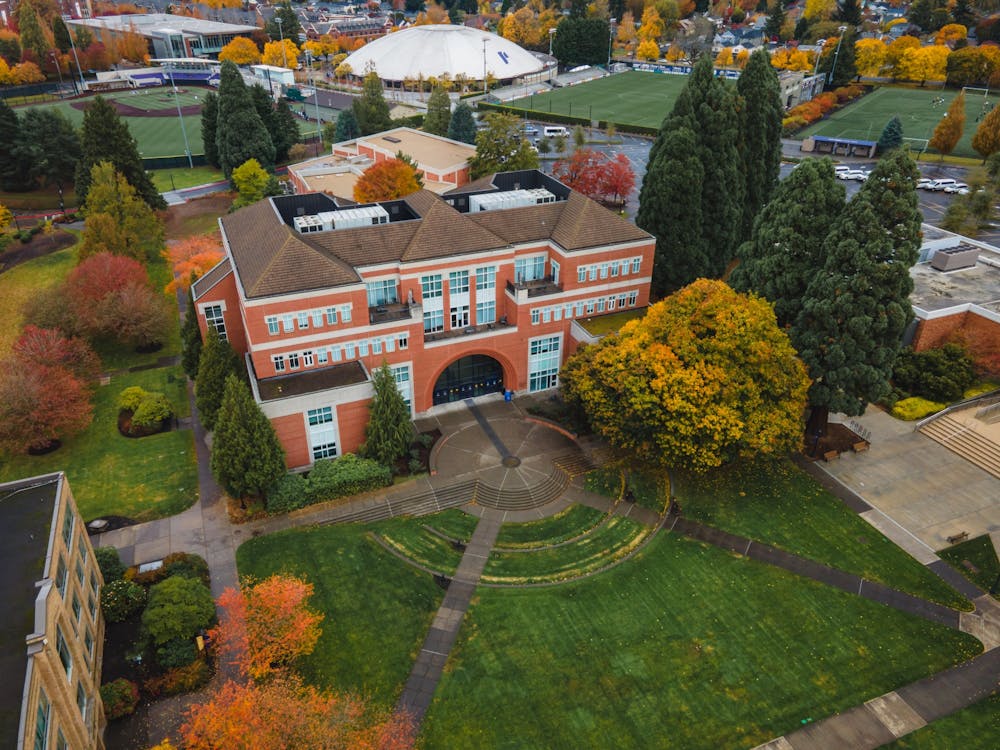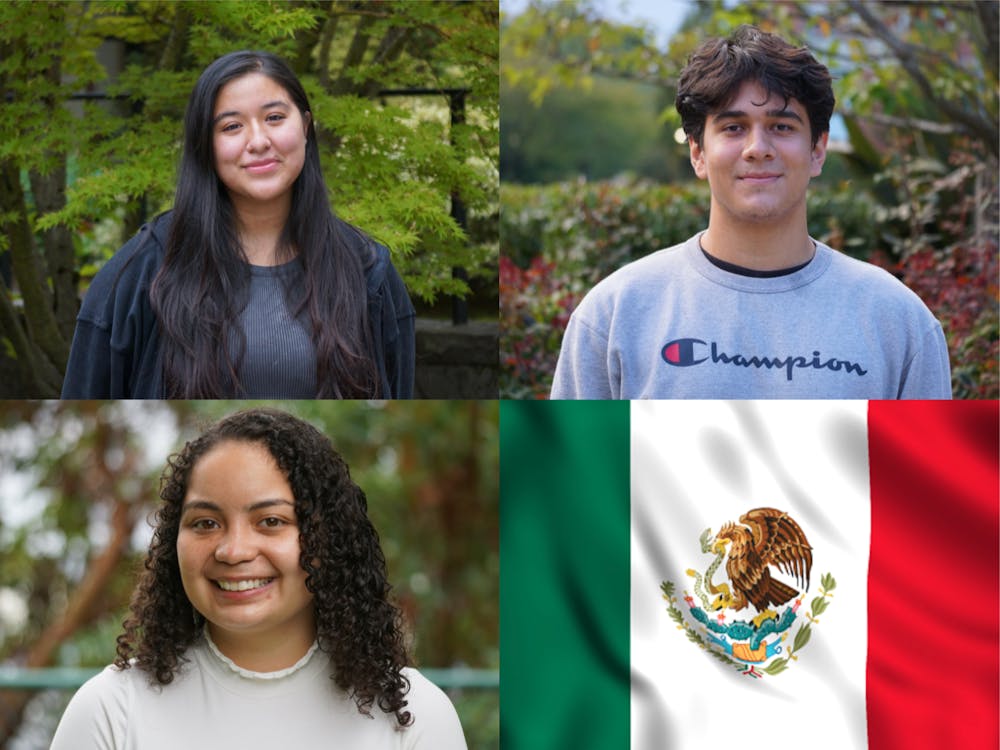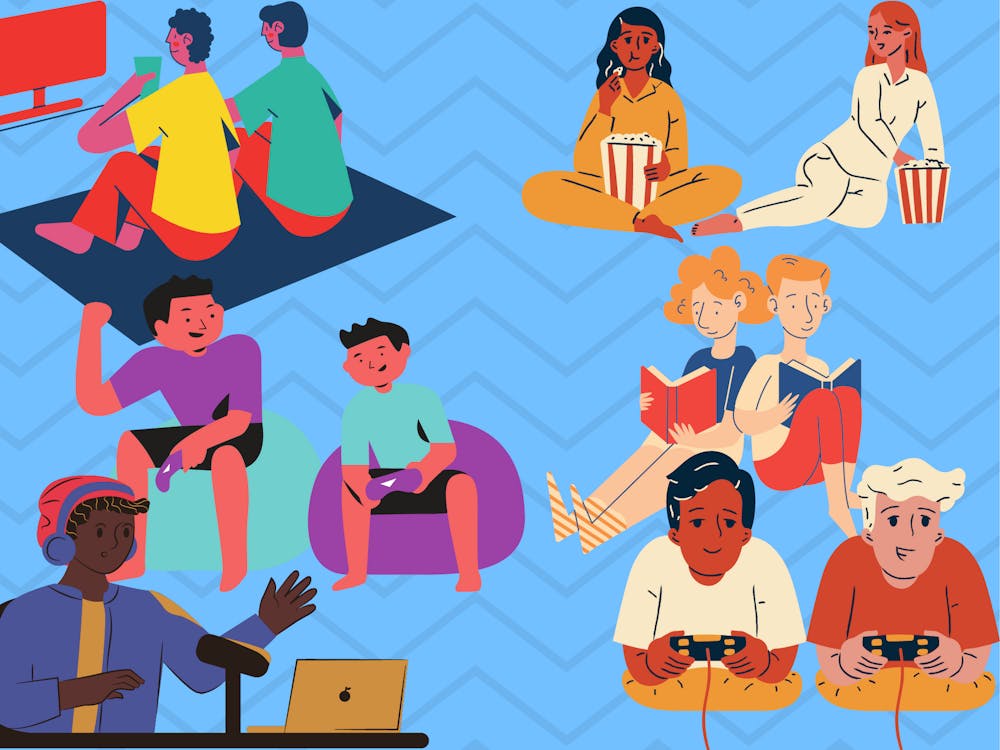We might think of The Bluff as the home to college students and faculty, but this wasn’t always the case. The land that University of Portland sits on first belonged to Native American tribes, such as the Multnomah, Cowlitz and Clackamas. In acknowledgment and out of respect, it is our duty to give homage to this land and culture.
November is Native American Heritage Month, and UP’s Native American Alliance (NAA) is preparing to share native culture with other students in order to appreciate and educate others about native communities. NAA leadership is still in the process of setting a date for this event. Updates on club events can be found on the club Instagram page.
NAA will also be partnering with Diversity and Inclusion for an event that is yet to be announced. In this event, the discussion will revolve around the impact of COVID-19 on native communities and include a panel of speakers, some of which include royalty from tribes.
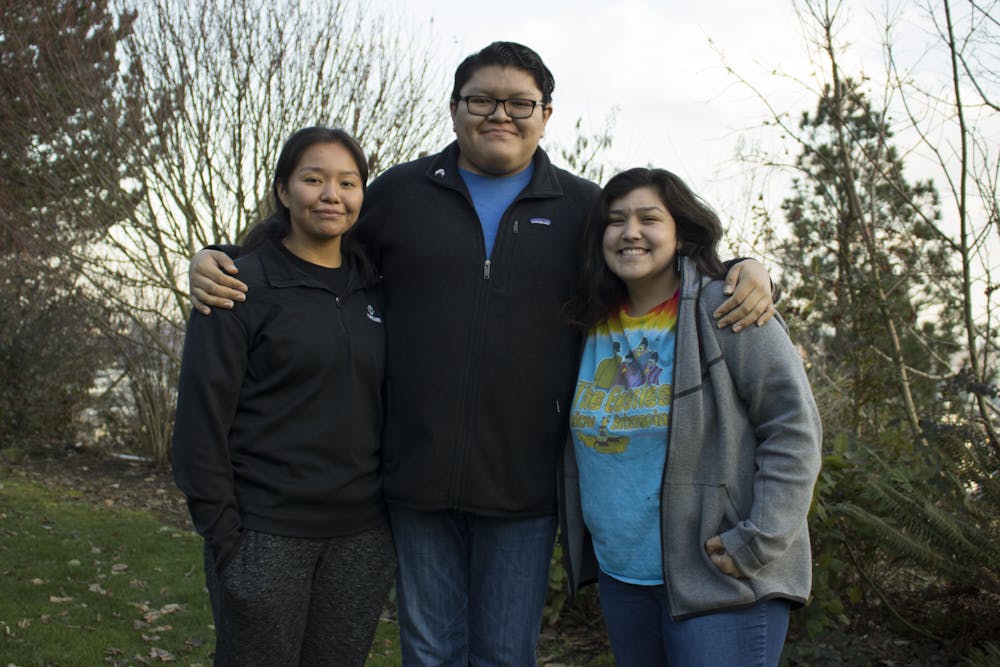
From the left to right: Devonna Begay, NAA Treasurer, tribal affiliation - Navajo & Kiowa / Sonny Olguin, NAA President, tribal affiliation - Isleta Pueblo & Navajo / Emma Arres, NAA VP, tribal affiliation - Soboba Band of Luiseno Indians.
In years past, NAA has prepared traditional native foods, such as fry bread, to share with other students to discuss how the dish is prepared as well as the history behind it. This year, NAA plans to continue the tradition by preparing foods that can be shipped to students, and host a Zoom meeting to have a discussion about the food. While this event may not occur this month because of logistical difficulties, it will happen at a later time, NAA president Sonny Olguin said.
Expanding beyond the month of November, NAA wants to increase its presence on campus.
“We’re often forgot about and some people think we don’t exist,” Olguin said. “In celebration of this month, I still want to do it because I myself have a responsibility to continue this club.”
This year, the club wants to also introduce pinyons, which is a nut from a pine tree and a traditional Native American food. The pine tree the pinyon comes from is common in the southwestern United States. By sharing food, the club is able to create a community in a festive way, NAA treasurer Devonna Begay said.
Native American Heritage Month this year has added significance with a record number of Native Americans winning their congressional races. As a result, native communities are able to see a bigger leadership and look to higher positions that Native American people are filling, Begay said.
In spirit of the month, there are resources available for students to educate themselves on Native American heritage. One of these resources is available through Clark Library. The library is providing a digital collection of educational resources on Native heritage.
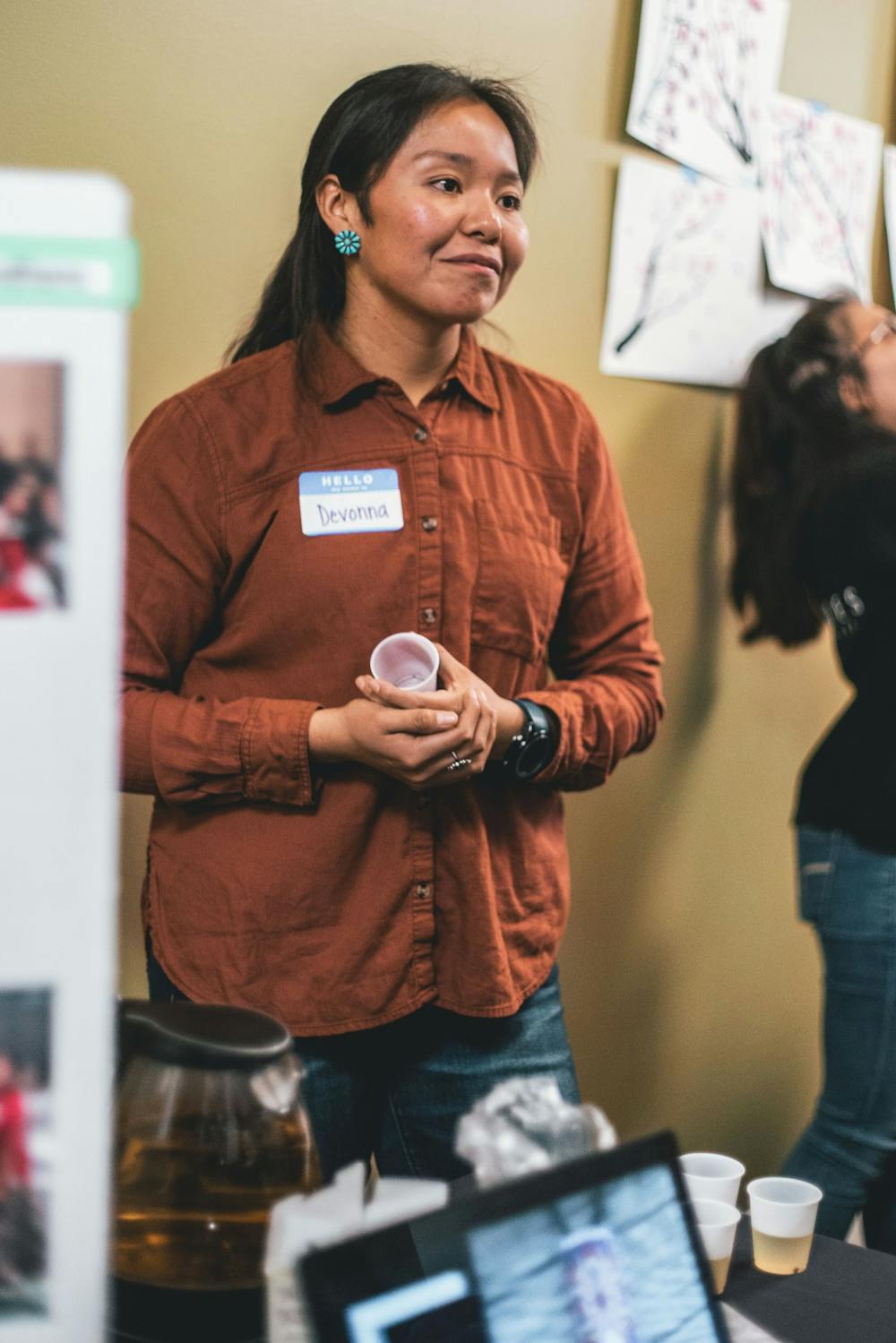
Other ways to become more educated include researching what tribes lived on the land you currently live on, which can be done on certain websites by typing a zip code into a search bar. From there, more specific research on tribes can be done. Another important step in education is reading, Olguin said.
“Someone could read a book or they could come to our club,” Olguin said. “I always tell people to start off by learning locally where you’re living. . . then you can expand and learn about more.”
NAA carries this celebration of Native culture into every month of the year with monthly meetings. These meetings involve discussions on Native customs and beliefs from various tribes across the U.S.
Alongside these discussions, NAA is also a place where Native students can find comfort within a smaller community.
“I grew up on my reservation and I’m very tied to my community,” Olguin said. “UP is predominantly white and this club was basically my friend group. When I first got to UP the first thing that was on my mind was to find other natives.”
With both club officers graduating this year, there is uncertainty and concern about the future of this club. Students who are interested in NAA leadership positions are encouraged to email Olguin or Begay.
Through the difficulties of online learning, NAA continues to hold monthly meetings to provide a space for both Native and non-Native students to gather to learn more and pay tribute to Native heritage.
Laura Heffernan is a reporter for The Beacon. She can be reached at hefferna23@up.edu.



